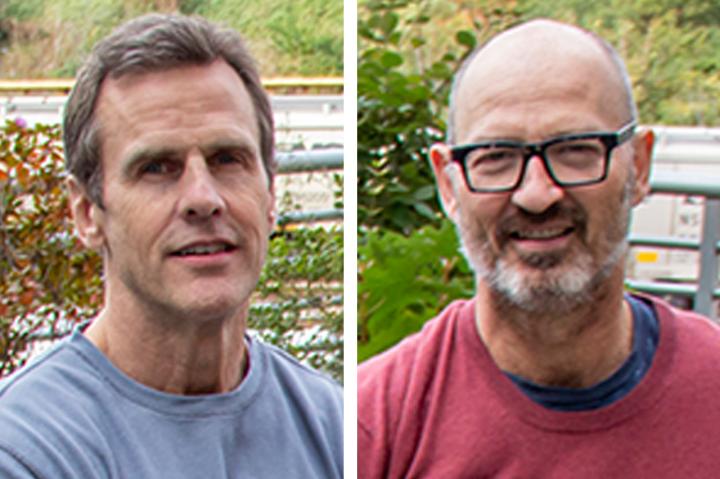Fralin Biomedical Research Institute at VTC neuroscientists show why it is difficult to re-evaluate past judgments

Credit: Virginia Tech
An international research team comprising neuroscientists at Virginia Tech, University College London and the University of London revealed brain mechanisms and functional regions that underlie confirmation bias — a phenomenon where people strongly favor information that reinforces their existing opinions over contradictory ones.
The study, published this week in Nature Neuroscience, provides insight into a fundamental property of belief formation that has been documented by psychologists and economists, as well as in popular literature, including George Orwell’s “1984.” People tend to disregard information that conflicts with their past choices, no matter how authoritative or factual the new information may be.
“We are watching this all over the news,” said P. Read Montague, a professor and director of the Human Neuroimaging Laboratory at the Fralin Biomedical Research Institute at VTC, and an honorary professor at the Wellcome Center for Human Neuroimaging at University College London. “It is the mystery of decision-making. People routinely make decisions that cut across their own best interests. We clearly know this in areas like drug abuse, overeating, or any repetitive activity during which people disregard obviously beneficial advice.”
In the study, participants from Roanoke and Blacksburg, Virginia, arrived at the laboratory in pairs and were introduced to each other before retiring to individual cubicles. They played a real estate game, made wagers for cash, and then re-evaluated their decisions in light of the wagers made by their partners.
Researchers combined functional magnetic resonance imaging (fMRI) with the behavioral task. Participants’ blood oxygen level-dependent (BOLD) variables were examined through moderated mediation analysis, capturing a relationship between brain activity and multiple levels of performance, and testing whether the mediation is different for conditions of agreement and disagreement.
When participants learned their partners agreed with their opinions, they significantly increased their bets, thus confirming they were confident with their decision. Participants only slightly decreased their wagers when their partners disagreed.
The impact of the partner’s opinion was far greater when it confirmed the player’s judgment, and the partner’s opinion was more likely to be disregarded when it was contradictory — consistent with confirmation bias.
The functional brain imaging data revealed a region whose activity modulation was associated with decision-making and memory. The posterior medial prefrontal cortex mediated the strength of confirming opinions over disconfirming opinions, and tracked agreements more closely than disagreements.
“We are using functional neuroimaging and computational neuroscience to take apart the mechanisms that look at why we are biased to make one kind of decision versus another, what neural structures are involved, and how do these change across development and across states of health, disease and brain injury,” Montague said. “In that sense, the study contributes directly to understanding why people make decisions. It has implications for institutions all across our culture where people make judgments that are either against or congruent with their own interests.”
###
Montague is also the director of the Fralin Biomedical Research Institute’s Computational Psychiatry Unit, and a professor in the department of physics in Virginia Tech’s College of Science, and in the department of psychiatry and behavioral medicine in the Virginia Tech Carilion School of Medicine.
Terry Lohrenz, a research assistant professor in the Montague laboratory at Fralin Biomedical Research Institute, worked on the design and execution of the research.
Andreas Kappes, of the University of London, and Tali Sharot, of University College London, are the corresponding and senior authors of the study.
Ann H. Harvey, also on the study team, is formerly a research scientist at the Fralin Biomedical Research Institute now with the Museum of Science and Industry in Chicago.
The research was funded by a Wellcome Trust Principal Research Fellowship to Montague.
Media Contact
John Pastor
[email protected]
352-408-3426
Related Journal Article
http://dx.




